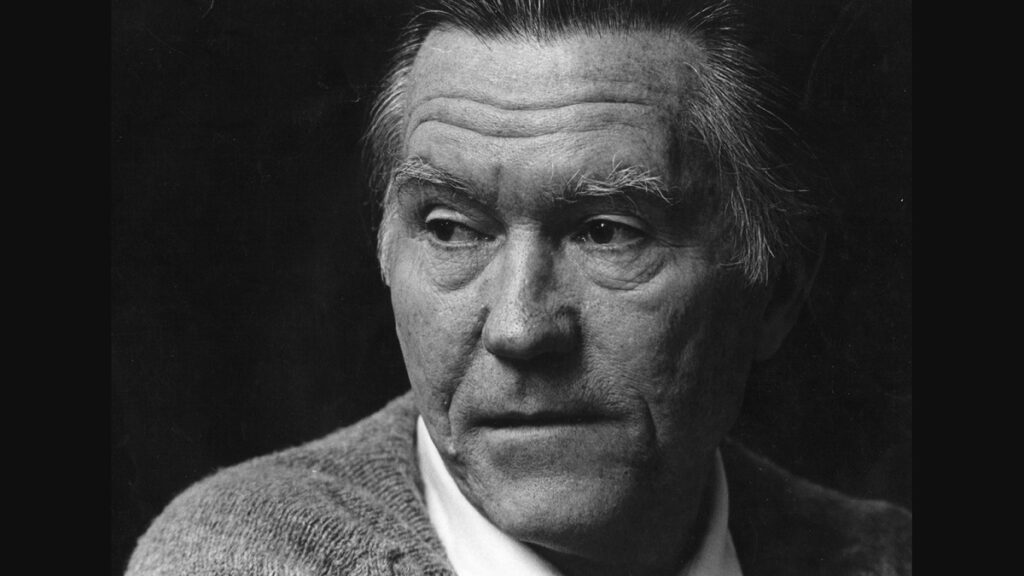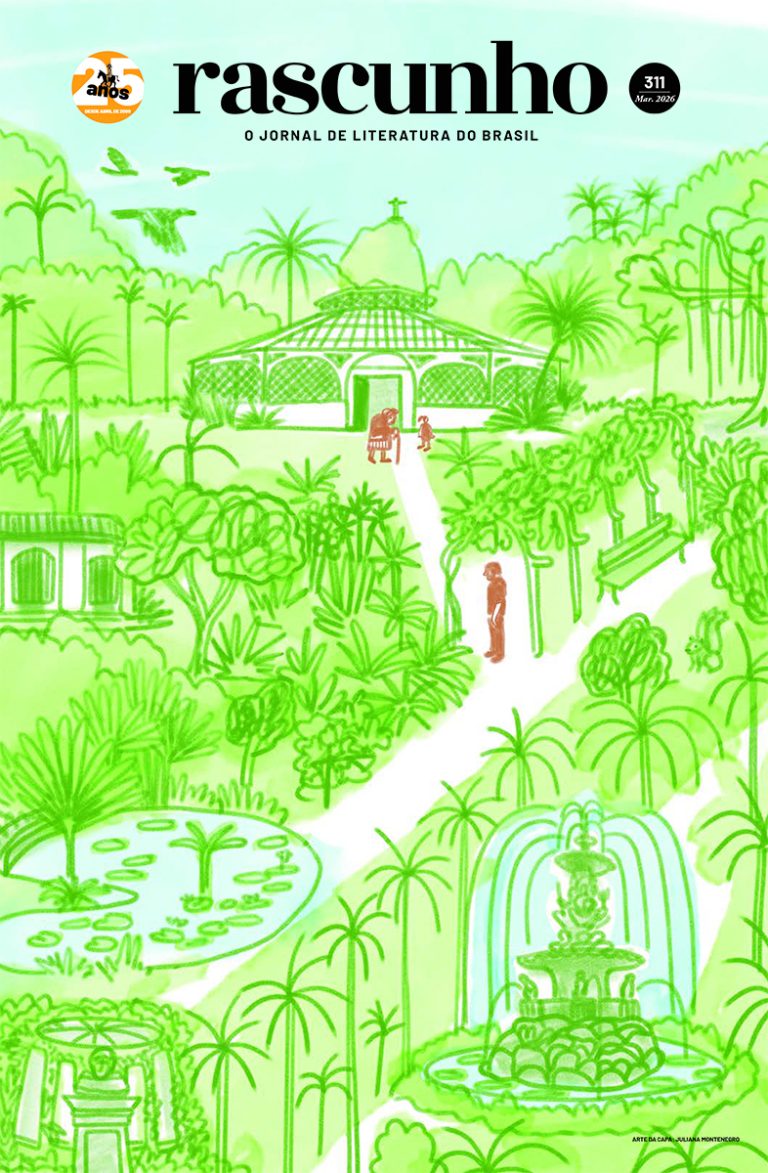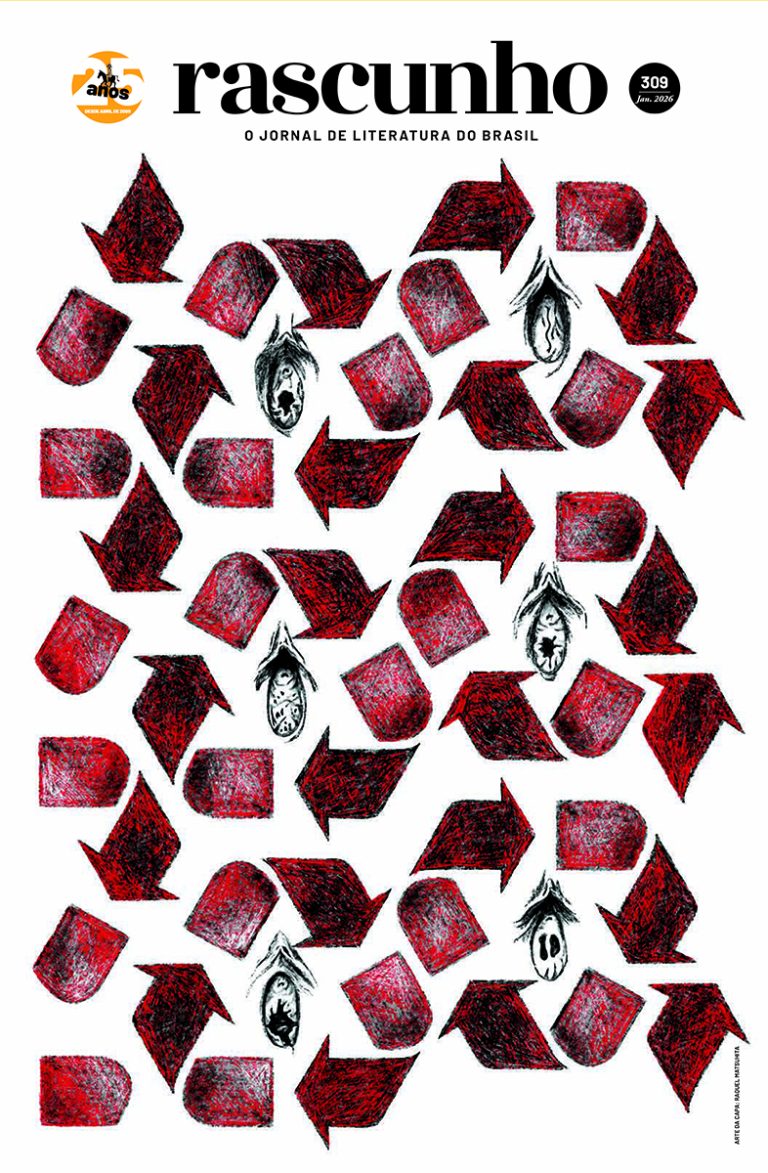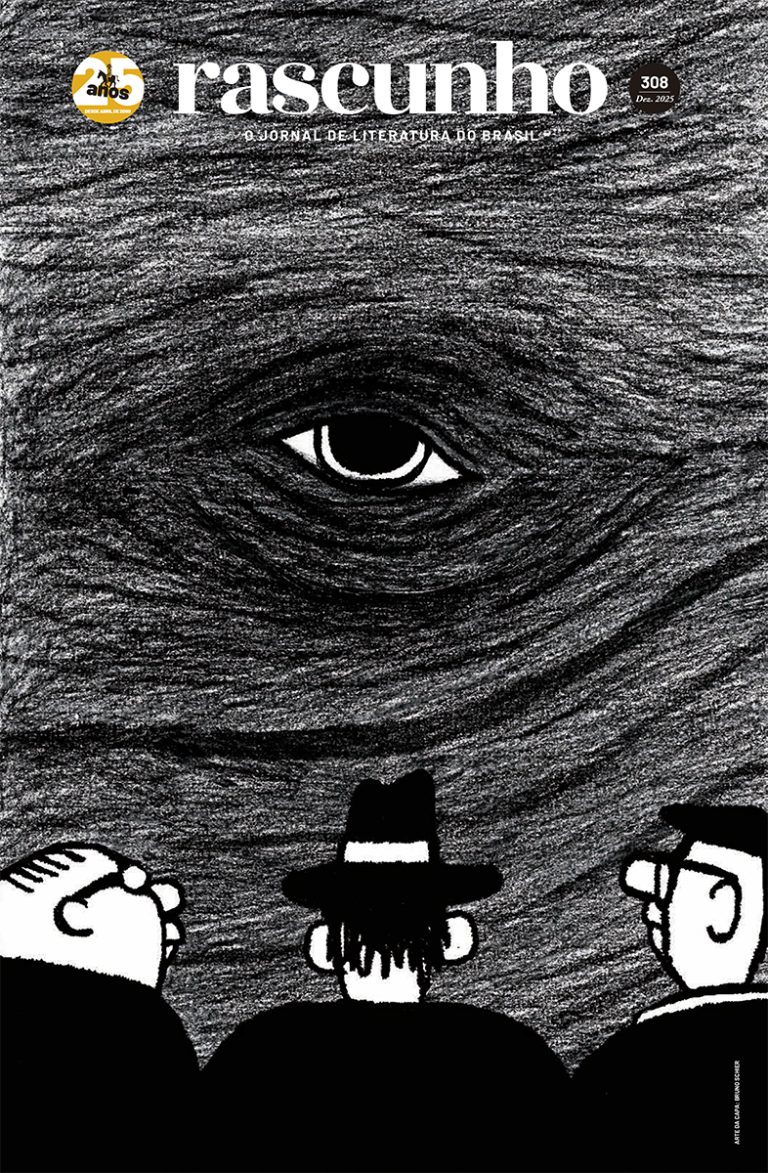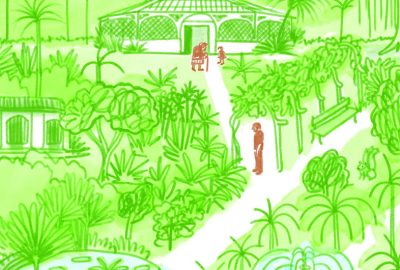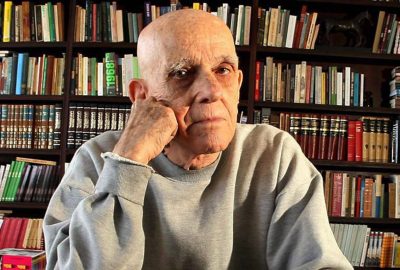Tradução e seleção: André Caramuru Aubert
Letting You Go
Day brings what is going to be. Trees —
wherever they are — begin to stand.
I have a crossing to do today
onward through this shadowy land.
How still earth stayed that night at first
when you didn’t breathe. I couldn’t believe
how carefully moonlight came. It was
like the time by my mother’s grave.
Today I am going on. In former times
when you were back there, then
I tried to hold the moon and sun.
Now when they ask me who you were —
I remember, but remember my promise.
And say, “No one.”
Deixando que você se vá
O dia traz o que deve mesmo ser. Árvores —
onde quer que estejam — começam a se impor,
Eu tenho uma travessia para fazer hoje
ir em frente por esta terra sombria.
Quão imóvel a Terra ficou a princípio, naquela noite
quando você não mais respirou. Eu não podia crer
quão delicadamente a luz da lua chegou. Foi como
em outro tempo junto ao túmulo de minha mãe.
Hoje eu vou em frente. Em tempos passados
quando você estava lá, eu tentei,
então, agarrar a lua e o sol.
Agora quando me perguntam quem era você —
Eu me lembro, mas me lembro da minha promessa.
E digo: “Ninguém”.
…..
The Little Girl by the Fence at School
Grass that was moving found all shades of brown,
moved them along, flowed autumn away
galloping southward where summer had gone.
And that was the morning someone’s heart stopped
and all became still. A girl said, “Forever?”
And the grass: “Yes. Forever”. While the sky —
The sky — the sky — the sky.
A menininha junto à cerca na escola
A grama em movimento encontrava todos os tons de marrom,
movia-os juntos, levando embora o outono
galopando rumo ao sul para onde fugiu o verão.
E aquela foi a manhã em que o coração de alguém parou
e ficou em repouso. Uma menina disse, “Para sempre?”
E a grama: “Sim. Para sempre”. Enquanto o céu —
O céu — o céu — o céu.
…..
Through the Junipers
In the afternoon I wander away through
the junipers. They scatter on low low hills
that open and close around me.
If I go far enough, all sight or sound
of people ends. I sit and look endless miles
over waves of those hills.
And then between sentences later when anyone
asks me questions troubling to truth,
my answers wander away and look back.
There are these days, and there are these hills
nobody thinks about, even in summer.
And part of my life doesn’t have any home.
Por entre os juníperos
À tarde eu vago por entre os
juníperos. Eles se espalham por colinas
que se abrem e fecham à minha volta.
Se eu vou longe o bastante, toda visão ou som
de gente desaparece. Me sento e olho, milhas sem fim
para aquelas colinas onduladas.
E então mais tarde, entre frases, quando alguém
me faz perguntas que confundem a verdade,
minhas respostas vagueiam e olham para trás.
Há estes dias e há estas colinas
sobre os quais ninguém pensa, mesmo no verão.
E parte da minha vida nem mesmo tem um lar.
…..
Traveling through the Dark
Traveling through the dark I found a deer
dead on the edge of the Wilson River road.
It is usually best to roll them into the canyon:
that road is narrow; to swerve might make more dead.
By glow of the tail-light I stumbled back of the car
and stood by the heap, a doe, a recent killing;
she had stiffened already, almost cold.
I dragged her off; she was large in the belly.
My fingers touching her side brought me the reason —
her side was warm; her fawn lay there waiting,
alive, still, never to be born.
Beside that mountain road I hesitated.
The car aimed ahead its lowered parking lights;
under the hood purred the steady engine.
I stood in the glare of the warm exhaust turning red;
around our group I could hear the wilderness listen.
I thought hard for us all — my only swerving —,
then pushed her over the edge into the river.
Viajando no escuro
Viajando no escuro eu encontrei um cervo
morto na beira da estrada do Rio Wilson.
O ideal é normalmente fazê-los rolar cânion abaixo:
aquela estrada é estreita; tentar desviar pode causar mais mortes.
Com o brilho da luz da traseira eu tropecei atrás do carro
e caí sobre o volume, uma corça, uma morte recente;
ela já estava rígida, quase fria.
Eu a arrastei; ela estava gorda na barriga.
Meus dedos, ao tocar a lateral dela, me esclareceram —
a lateral dela estava quente; seu filhote estava lá, esperando,
vivo, ainda, para jamais nascer.
Na beira daquela estrada na montanha eu hesitei.
O carro apontava para adiante suas lanternas;
sob o capô ronronava imperturbável o motor.
Eu junto ao escapamento, que ia ficando vermelho;
em volta de nós eu podia escutar o mundo selvagem nos ouvindo.
Eu refleti intensamente por todos nós — meu único desvio —,
e então eu a empurrei para que despencasse no rio.
…..
“Are you Mr. William Stafford?”
28 August
“Are you Mr. William Stafford?”
“Yes, but…”
Well, it was yesterday.
Sunlight used to follow my hand.
And that’s when the strange siren-like sound flooded
over the horizon and rushed through the streets of our town.
That’s when the sunlight came from behind
a rock and began to follow my hand.
“It’s for the best,” my mother said — “Nothing can
ever be wrong for anyone truly good.”
So later the sun settled back and the sound
faded and was gone. All along the streets every
house waited, white, blue, gray; trees
were still trying to arch as far as they could.
You can’t tell when strange things with meaning
will happen. I’m [still] here writing it down
just the way it was. “You don’t have to
prove anything,” my mother said. “Just be ready
for what God sends.” I listened and put my hand
out in the sun again. It was all easy.
Well, it was yesterday. And the sun came,
Why
It came.
Você é o senhor William Stafford?
28 de agosto
“Você é o senhor William Stafford?”
“Sim, mas…”
Bem, foi ontem.
A luz do sol seguia a minha mão.
E foi então que um som estranho como uma sirene transbordou
no horizonte e avançou pelas ruas de nossa cidade.
Foi quando a luz do sol vinha por detrás
de uma rocha e começou a seguir a minha mão.
“É melhor assim”, disse minha mãe — “Nada de ruim
pode acontecer com quem é bom de verdade.”
E então mais tarde o sol se pôs e o som
se dissipou e se foi. Ao longo das ruas cada
casa esperou, branca, azul, cinza; árvores
ainda tentavam se arquear tanto quanto pudessem.
Você não pode prever quando coisas estranhas significando algo
ocorrerão. Eu [ainda] estou aqui escrevendo sobre isso
exatamente como tudo se deu. “Você não tem que
provar nada,” minha mãe disse. “Apenas esteja pronto
para o que Deus enviar.” Eu ouvi e pus minha mão
sob o sol de novo. Foi bastante fácil.
Bem, isso foi ontem. E o sol veio,
Por que
ele veio.
…..
The Tillamook Burn
These mountains have heard God;
they burned for weeks. He spoke
in a tongue of flame from sawmill trash
and you can read His word down to the rock.
In milky rivers the steelhead
butt upstream to spawn
and find a world with depth again,
starting from stillness and water across gray stone.
Inland along the canyons
all night weather smokes
past the deer and the widow-makers —
trees too dead to fall till again He speaks,
Mowing the criss-cross trees and the listening peaks.
A queimada do Tillamook[2]
Estas montanhas ouviram Deus;
arderam por semanas. Ele falou
numa língua de chamas que vieram do entulho das serrarias
e você pode ler Sua palavra até nas pedras.
Em rios leitosos as trutas-arco-íris
se batem correnteza acima para desovar
e encontram novamente um mundo com profundidade,
que nasce na quietude e na água entre rochas cinza.
Terra adentro ao longo dos cânions
por toda a noite o clima fumando
passando por cervos e por fazedores de viúvas[3] —
árvores por demais mortas para cair até que de novo Ele fale,
Serrando as árvores em ziguezague e os picos que ouvem.
…..
Our Story
Remind me again — together we
trace our strange journey, find
each other, come on laughing.
Some time we’ll cross where life
ends. We’ll both look back
as far as forever, that first day.
I’ll touch you — a new world then.
Stars will move a different way.
We’ll both end. We’ll both begin.
Remind me again.
Nossa história
Me lembre novamente — juntos nós
traçamos nossa estranha jornada, encontramos
um ao outro, lá chegamos rindo.
Um dia nós cruzaremos o ponto onde a vida
termina. Nós dois olharemos para trás
tão longe quanto para sempre, aquele primeiro dia.
Eu tocarei você — um novo mundo então.
Estrelas se moverão de uma maneira diferente.
Nós dois no fim. Nós dois no começo.
Me lembre novamente.
…..
At the Grave of My Brother
The mirror cared less and less at the last, but
the tone of his voice roamed, had more to find,
back to the year he was born; and the world
that saw him awhile again went blind.
Drawn backward along the street, he disappeared
by the cedars that faded a long time ago
near the grave where Mother’s hair was a screen
but she was crying. I see a sparrow
Chubby like him, full of promise, barely
holding a branch and ready to fly.
In his house today his children begin
to recede from this year and go their own way.
Brother: Goodby.
Junto à sepultura de meu irmão
O espelho se importava menos e menos no fim, mas
o tom de sua voz vagueava, tinha muito o que procurar,
lá atrás, no ano em que nasceu; e o mundo
que o viu por um tempo, de novo ficou cego.
Esboçado em sentido contrário na rua, ele desapareceu
sob os cedros que murcharam muito tempo antes
perto da sepultura onde o cabelo de mãe era uma tela,
mas ela chorava. Eu vi um pardal
Gordo como ele, repleto de possibilidades, mal
segurando um ramo e pronto para voar.
Hoje em sua casa seus filhos começaram
a recuar deste ano, e seguem seus próprios caminhos.
Irmão: adeus.
…..
Stillborn
Where a river touches an island
under willows leaning over
I watch the waves and think of you,
who almost lived.
Stars will rake the sky again,
and time go on, the dark, the cold.
Clouds will race when the wind begins,
where you almost were.
But while the thunder shakes the world
and the graceful dance and the powerful win,
still faithful, still in thought, I bow,
little one.
Natimorto
Onde um rio toca uma ilha
sob salgueiros que se curvam
eu observo as ondas e penso em você,
que quase viveu.
Estrelas varrerão o céu novamente,
e o tempo seguirá, a escuridão, o frio.
Nuvens correrão quando o vento começar,
onde você quase viveu
Mas enquanto o trovão chacoalha o mundo
e a graciosa dança e a poderosa vitória,
ainda crente, ainda pensando, eu me curvo,
pequeno.
NOTAS
[1] Uma seleção de Robinson Jeffers saiu no Rascunho #176, de dezembro de 2014.
[2] A queimada de Tillamook foi na verdade não um, mas quatro grandes incêndios, ocorridos entre 1933 e 1951, que destruíram uma área total de 1.400 quilômetros quadrados de antigas florestas no litoral do Estado de Oregon, no que é hoje um parque estadual. No primeiro dos incêndios, cinzas chegaram até navios que estavam a 800 quilômetros da costa.
[3] Widow makers, que traduzimos literalmente como “fazedores de viúvas”, se referem, no contexto, a galhos secos e soltos, no alto de velhas e grandes árvores, que podem cair a qualquer momento, matando quem esteja por baixo.

